Biden’s Erasure of Arabs Is Part of a Painful History I Know Too Well
For decades, we have faced death threats, political exclusion, and discrimination for our pro-Arab and pro-Palestinian work. It’s long past time for things to change.

James Zogby at a press conference in 1990.
(C-SPAN)On November 1, 2023, in the early days of the devastating violence in Gaza, the White House announced a “US National Strategy to Counter Islamophobia in the United States.” The idea might have been commendable but for the timing (which reasonably suggested political motives) and the opening paragraph of the statement announcing the effort. It read: “For too long, Muslims in America, and those perceived to be Muslim, such as Arabs and Sikhs, have endured a disproportionate number of hate-fueled attacks and other discriminatory incidents.”
With full knowledge of the exclusion, threats, and violence my community has faced, I took umbrage at the “perceived to be Muslim” line. There is anti-Muslim bias, to be sure, and it often overlaps with anti-Arab bigotry, but they are not the same thing. The Biden administration’s crude effort to subsume the long and painful history of anti-Arab racism in America was factually wrong and deeply hurtful. It ignored the many challenges we have faced precisely because we are of Arab descent or because we support Palestinian rights, no matter our religious background. The White House had effectively erased us.
Having spent my entire adult life dealing with death threats, discrimination, and political exclusion, this is regrettably a topic I know well—and it is a story that needs to be told.
While many of the incidents I’ll relate here are personal, I know from conversations within my community that these experiences have been repeated many times over. The problem is that my generation failed to share our stories of exclusion or hate in large part because many of us assumed it was just the price we were expected to pay for being Arab or supporting Palestinian human rights. For decades, my reaction to discrimination and threats was guilt—the feeling that it was my fault. Time and again, I would say to myself, “If only I had either hidden my ethnicity or been a quiet college professor, this wouldn’t be happening to me or my family.”
A full accounting of this history would take ages. But some events stand out:
In 1978, as a board member of the National Association of Arab Americans (NAAA), I was invited to a meeting of ethnic leaders at the White House. Three days after the meeting, I received a call from a Carter administration official informing me that I wouldn’t be invited to the follow-up meeting because Jewish groups had complained about a pro-Palestinian Arab at the meeting.
On separate occasions in 1979 and 1981, two different groups I had been leading (the Palestine Human Rights Campaign and the American Arab Anti-Discrimination Committee, or ADC) applied for membership in the Coalition for a New Foreign and Military Policy, a Washington-based coalition of peace and human rights organizations. In both instances, we handily won the votes needed for admission. Then, two Jewish groups complained that they would leave the Coalition if the Arab groups were admitted, arguing that our involvement would undercut the effectiveness of the Coalition with Congress. Instead of pushing back, the Coalition leadership asked us to pull out. It was a painful decision to make, but we withdrew.
We faced similar efforts at exclusion led by major Jewish organizations on two other occasions in 1983. The first was when, as executive director of the ADC, I was invited to chair an Italian American-led multiethnic coalition to combat media stereotyping. The second came in reaction to the ADC’s invitation to serve on the steering committee of the 20th anniversary of the March on Washington. What was different was that in both instances, we were defended and we remained—as did the objecting organizations.
Exclusion also followed us into electoral politics. Candidates returned our contributions (Wilson Goode in 1983, Walter Mondale in 1984, and David Dinkins in 1989) or rejected our endorsements (Michael Dukakis in 1988). Others were pressured to fire Arab American staffers.
At the Democratic National Convention in 1988, I was nominated by Jesse Jackson to fill an at-large Democratic National Committee post. Within hours after being informed of my appointment, I was approached by party leaders who asked me to step down because the Dukakis campaign was concerned that Republicans and Jewish groups would attack the party for having a pro-Palestinian member. Soon-to-be-DNC-chair Ron Brown asked me to do so promising that he would make it up to me. Once again, I made the painful decision to step down with the agreement that they would appoint a young Arab American woman in my place. Unfortunately, she became the subject of full-page newspaper ads attacking Dukakis for her presence on the DNC. It was clear: our Arab identity was the issue. (Four years later, Brown kept his promise and appointed me to fill an open seat on the DNC.)
In many cases, the pain of exclusion turned violent. Over the past 50 years, I have received multiple death threats. In 1970, while serving as a graduate teaching assistant at Temple University, I received my first death threat—a letter with words cut out of magazine headlines saying, “Arab dog you will die if you set foot on campus again.” When I took it to the campus police, they asked me what I had been saying to warrant this reaction. A few days later, campus police were called to my class to remove a group of Jewish Defense League (JDL) protesters who were chanting threats outside my classroom door.
Popular
“swipe left below to view more authors”Swipe →In 1980, the Washington office of the Palestine Human Rights Campaign was firebombed. The JDL didn’t claim credit for the attack but issued a statement “approving” of the violence. Six months later, after I launched the ADC and moved to an office in the National Press Building, the JDL’s notorious founder, Meir Kahane, sent a flyer to everyone in that building notifying them of his intention to demonstrate outside our fifth-floor office. He came pounding on our door shouting that he knew we were the same people who had been firebombed, and that although we had “run away” and changed our name, he had found us. The police came and took him away.
The threats, by mail and phone (some to my home), continued. In 1985, a colleague, Alex Odeh, was murdered by a bomb at his southern California office. The then-chair of the JDL said Odeh had gotten “exactly what he deserves.”
In the post-9/11 period, the threats became more intense. A day after the attack, I received an email calling me a “raghead” and threatening to “murder you and slit the throats of your children.” This was the first of dozens of such threats. During the next 15 years, three individuals were convicted and sent to prison for hate crimes and death threats against me, my family, and my staff. In the most recent case, the perpetrator was charged, prosecuted, and convicted by the Justice Department for threatening my organization for our “efforts to encourage Arab Americans to participate in political and civic life in the United States.”
If not threatened with violence, we were defamed, with our status as Arabs or supporters of Palestinian rights used to deny employment or speaking opportunities. On one occasion, I was fired from a part-time position teaching at a Sunday school in comparative religions because some parents had complained about an Arab teaching their children. On another, I was hired but told that I could only expect to teach comparative religions—not courses dealing with the Middle East—because it might be too controversial to have a person of my ethnic background in that role (this despite the fact that the individual who was teaching their only Middle East courses was Jewish).
Thankfully, most of these efforts at defamation ultimately ran their course and failed. In 1993, then–Vice President Gore appointed me to codirect a program he had launched to support Israeli-Palestinian peace; in 2003 a college named me a visiting fellow; and in 2013 the Obama White House proceeded with my appointment to the US Commission on International Religious Freedom. In each instance, the White House and the college received slanderous complaints against my appointment—thankfully, they were rejected. However, I and other Arab Americans did not always fare as well, and I often reflect on the self-silencing that regularly occurred when faced with such intimidation.
Looking back at this painful history of threats, defamation, and exclusion, the pattern becomes clear: because we were of Arab descent and because we advocated for Palestinian rights, we were deemed to be a threat that needed to be silenced.
There is a history that links the past silencing of pro-Palestinian views with its current incarnation. Beginning in the 1970s, there was a determined campaign in the United States to make Palestinian rights a taboo topic. The US government pledged to the Israelis that they would not talk to the PLO or allow official Palestinian representatives into the country. A media campaign was launched glorifying Israel’s creation while vilifying Palestinians as terrorists. The Nakba was denied and Israeli terror and its human rights violations were erased. In the resultant environment, Americans who dared to counter this dominant narrative were defamed, ostracized, or silenced.
As public opinion toward Palestinians began to change during the first intifada and then with the opening that followed the Oslo Accords, Arab Americans and advocates for Palestinian rights experienced new respect and the freedom to have their voices heard. But it was not to be taken for granted. Pro-Israel organizations concerned that they were losing support struck back with a vengeance.
Today, people supporting Palestine are once again being defamed, threatened with loss of employment, and harassed for their views. Thirty-seven states have passed laws or executive orders penalizing individuals or groups who support boycotting or sanctioning Israel for its treatment of Palestinians. And the very same groups who violated our rights four decades ago are now using their clout to demand anti-Palestinian media coverage, silence debate on college campuses and redefine antisemitism to recreate a situation they fear is spinning out of control.
There is a direct connection between the challenges faced by my generation and those faced by supporters of Palestinian rights today. It cannot be ignored. Nor can it be conflated with anti-Muslim bias, as real a problem as that is. What we are experiencing today is not about religion and condemning “Islamophobia” will not address it. It’s about Palestinian rights. And it’s about whether or not we, as Americans, can have open and honest political discourse about our country’s role in the subjugation of Palestinian rights, an injustice that continues to threaten Israeli and Palestinian lives and the future of America in the Middle East.
We have a long way to go, but Arab Americans have the resolve to remain strong. That includes refusing to be excluded or erased because of our ethnicity or our beliefs.
Disobey authoritarians, support The Nation
Over the past year you’ve read Nation writers like Elie Mystal, Kaveh Akbar, John Nichols, Joan Walsh, Bryce Covert, Dave Zirin, Jeet Heer, Michael T. Klare, Katha Pollitt, Amy Littlefield, Gregg Gonsalves, and Sasha Abramsky take on the Trump family’s corruption, set the record straight about Robert F. Kennedy Jr.’s catastrophic Make America Healthy Again movement, survey the fallout and human cost of the DOGE wrecking ball, anticipate the Supreme Court’s dangerous antidemocratic rulings, and amplify successful tactics of resistance on the streets and in Congress.
We publish these stories because when members of our communities are being abducted, household debt is climbing, and AI data centers are causing water and electricity shortages, we have a duty as journalists to do all we can to inform the public.
In 2026, our aim is to do more than ever before—but we need your support to make that happen.
Through December 31, a generous donor will match all donations up to $75,000. That means that your contribution will be doubled, dollar for dollar. If we hit the full match, we’ll be starting 2026 with $150,000 to invest in the stories that impact real people’s lives—the kinds of stories that billionaire-owned, corporate-backed outlets aren’t covering.
With your support, our team will publish major stories that the president and his allies won’t want you to read. We’ll cover the emerging military-tech industrial complex and matters of war, peace, and surveillance, as well as the affordability crisis, hunger, housing, healthcare, the environment, attacks on reproductive rights, and much more. At the same time, we’ll imagine alternatives to Trumpian rule and uplift efforts to create a better world, here and now.
While your gift has twice the impact, I’m asking you to support The Nation with a donation today. You’ll empower the journalists, editors, and fact-checkers best equipped to hold this authoritarian administration to account.
I hope you won’t miss this moment—donate to The Nation today.
Onward,
Katrina vanden Heuvel
Editor and publisher, The Nation
More from The Nation

Anger at Corporate Power Is Everywhere Anger at Corporate Power Is Everywhere
It should guide the Democrats.
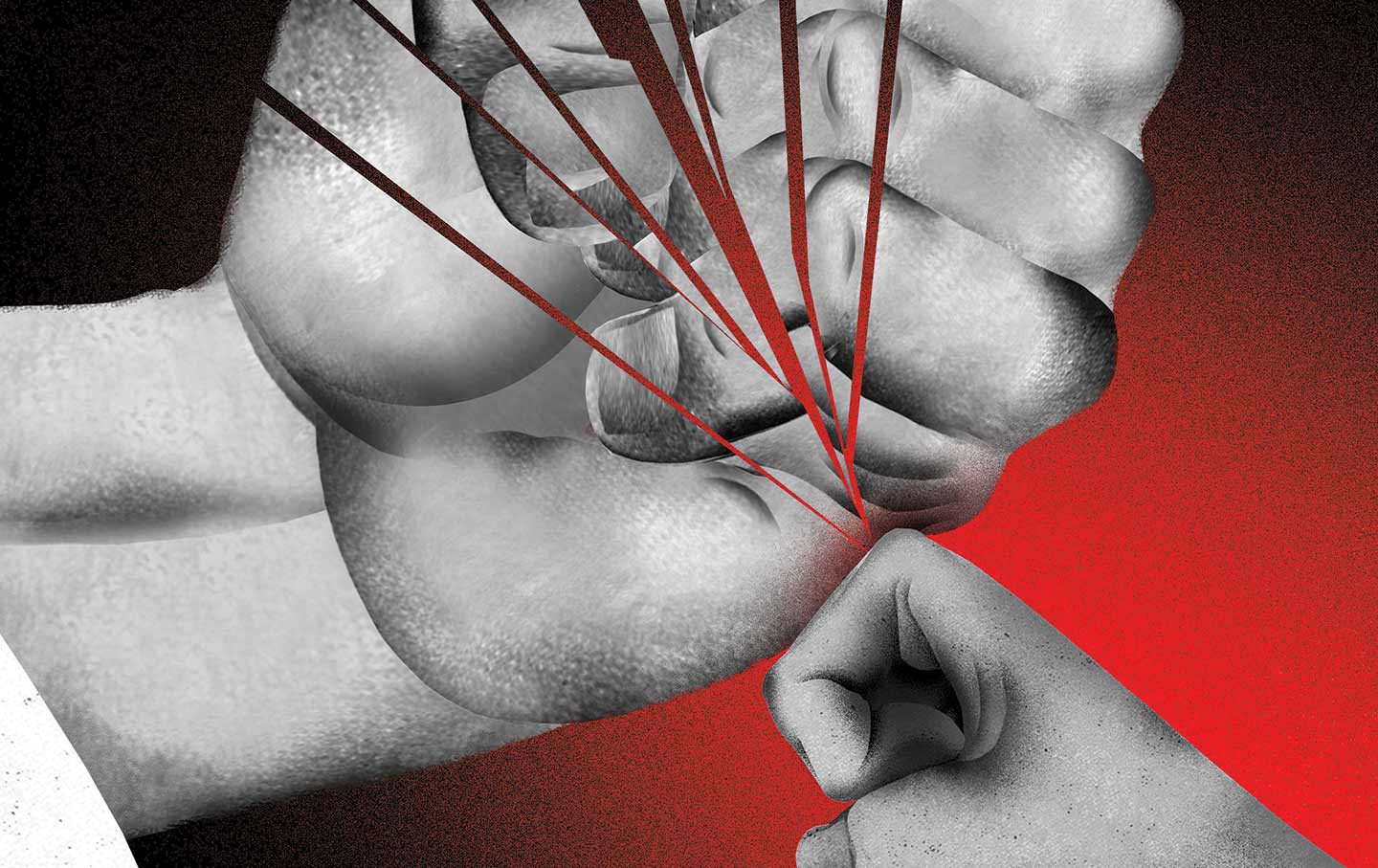
Honoring the Progressives Fighting for Our Democracy Honoring the Progressives Fighting for Our Democracy
These activists and artists, pastors, and political leaders know what has always been true: The people have the power.
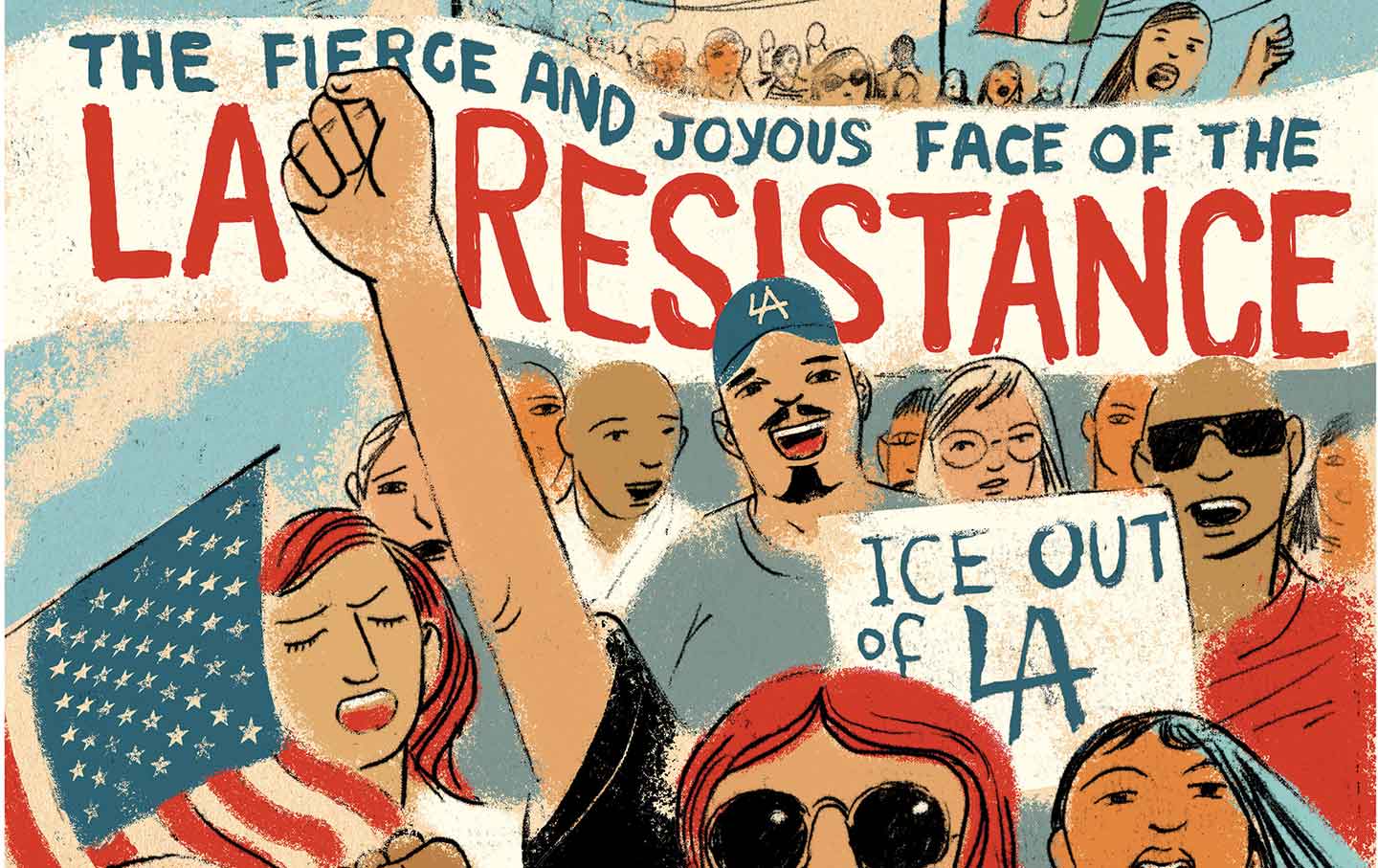
The Fierce and Joyous Face of LA Resistance The Fierce and Joyous Face of LA Resistance
What we can learn from a great American city’s refusal to bend to Trump’s invasion.
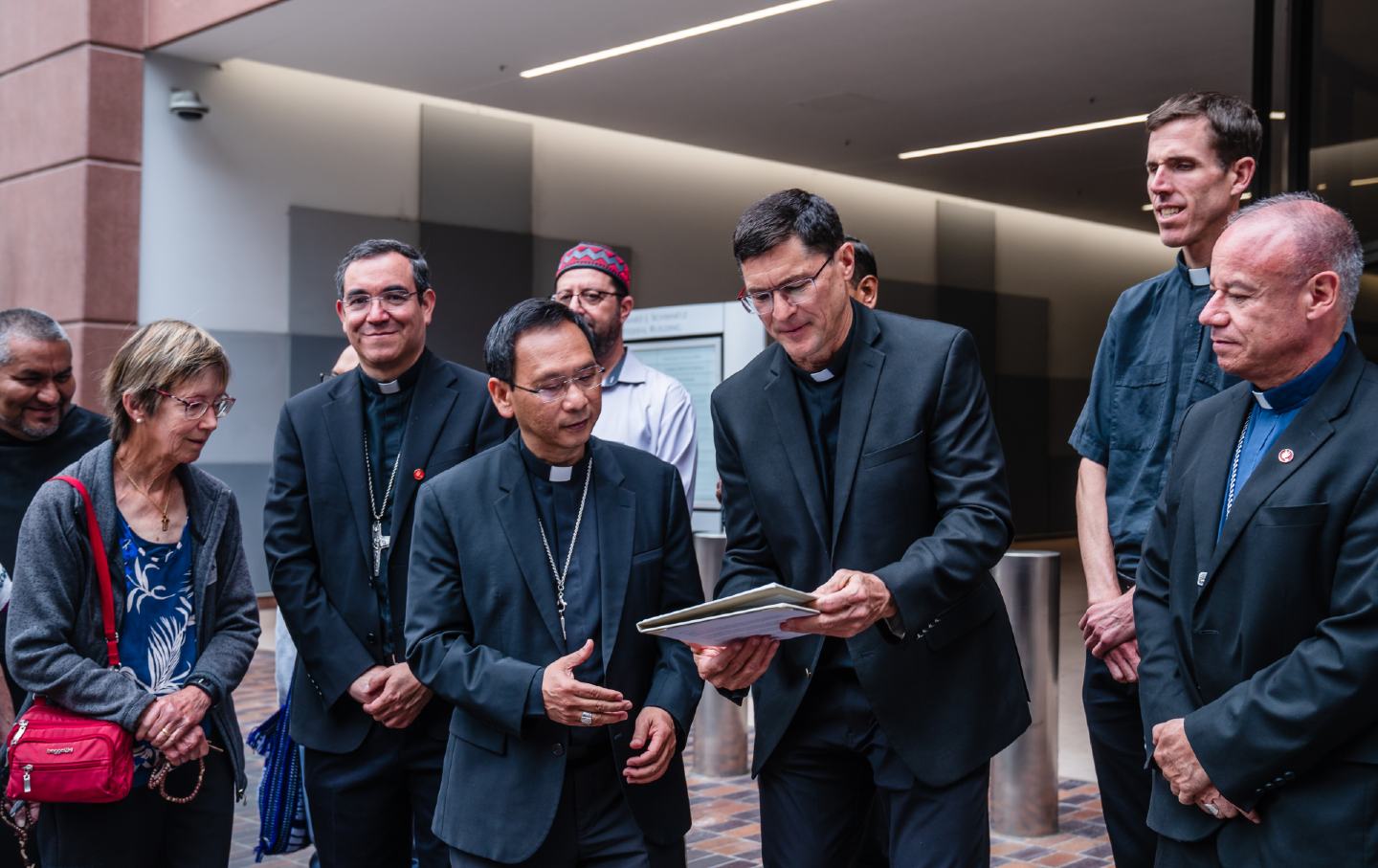
San Diego’s Clergy Offer Solace to Immigrants—and a Shield Against ICE San Diego’s Clergy Offer Solace to Immigrants—and a Shield Against ICE
In no other US city has the faith community mobilized at such a large scale to defend immigrants against the federal government.
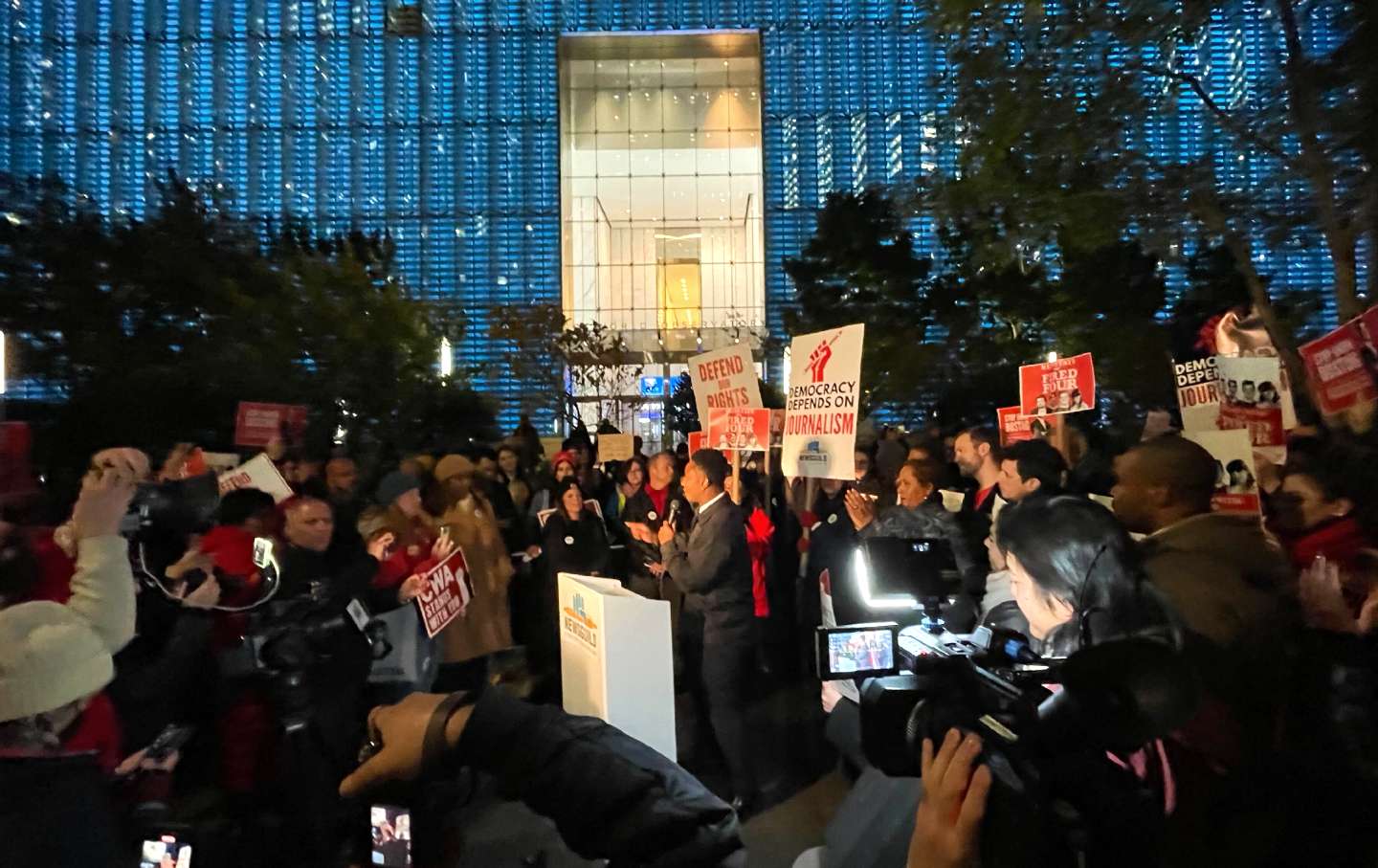
If Condé Nast Can Illegally Fire Me, No Union Worker Is Safe If Condé Nast Can Illegally Fire Me, No Union Worker Is Safe
The Trump administration is making employers think they can ignore their legal obligations and trample on the rights of workers.
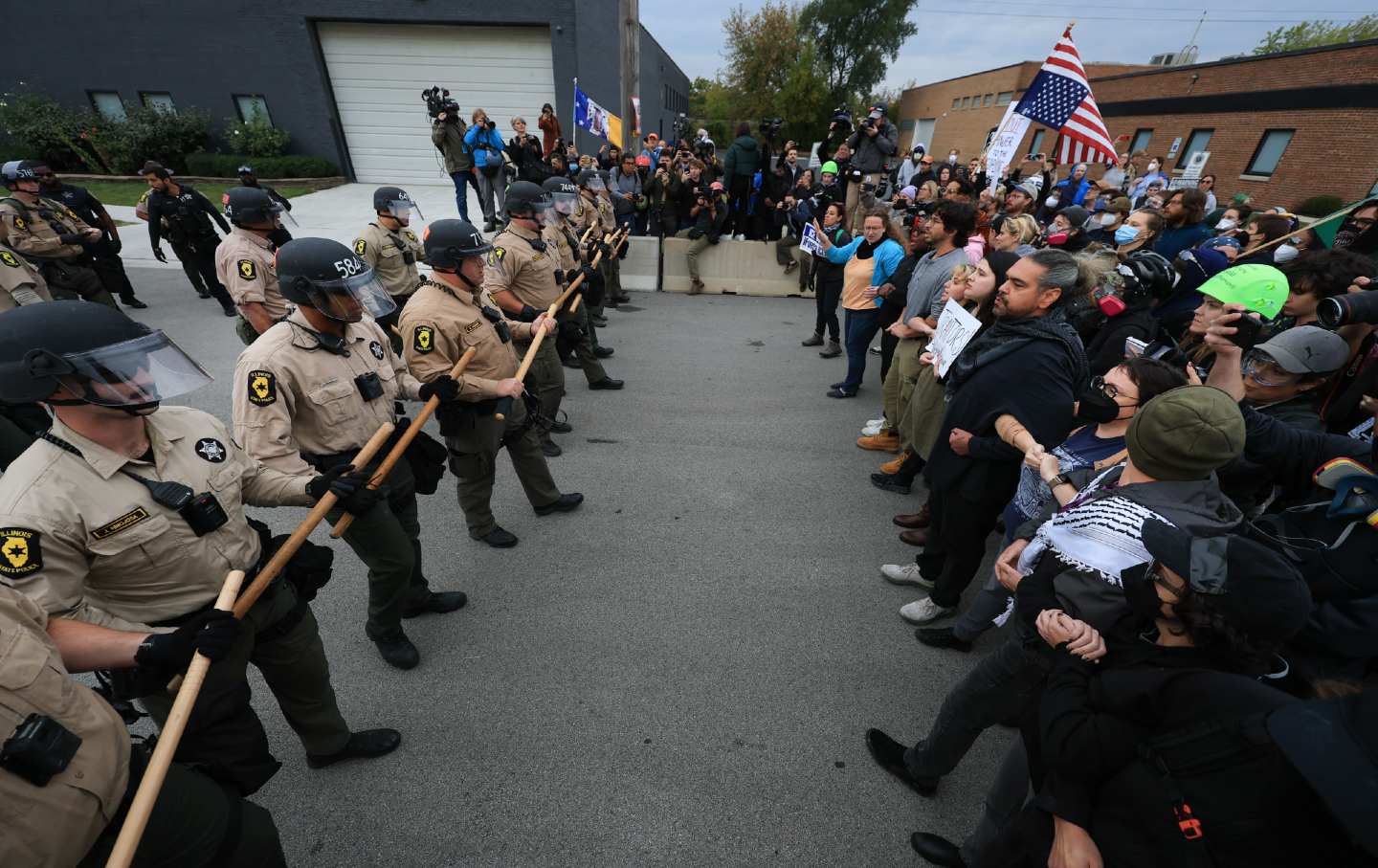
The Counteroffensive Against Operation Midway Blitz The Counteroffensive Against Operation Midway Blitz
How Chicago residents and protesters banded together against the Trump administration's immigration shock troops.


